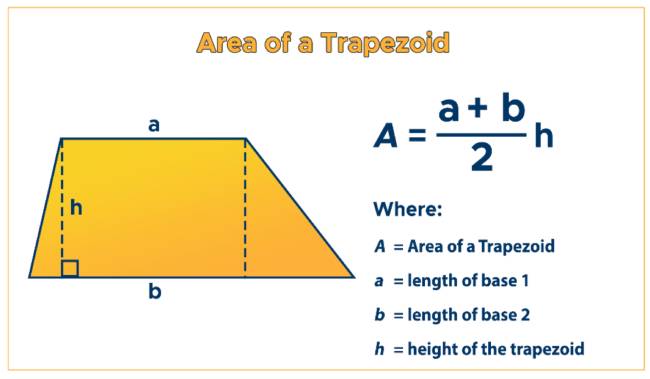How Much Does a Gallon of Water Weigh?
How much does a gallon of water weigh? As with solids and gases, a liquid’s capacity can be determined using a unit of measurement known as a gallon. A gallon measures a unit capacity of fluid in both the US customary units and the British imperial system.
Gallon sizes vary by region, with imperial gallons being used in the UK, Canada, and some Caribbean countries, US gallons in most Latin American countries, and US dry gallons, which are used less often. The three sizes of measurements are significantly different, with an imperial gallon defined as 4.546 liters, US gallon as 3.785 liters, and US dry gallon specified as 4.405 liters.

A Gallon of Water
How much does a gallon of water weigh? It is one of the questions that is dodged or incorrectly answered by many. According to some estimates, the answer to this question is between 5 and 15 pounds. It has been treated by some people as a tricky question without a definitive answer. Others go so far as asking what the temperature of the water is.
Originally, 1 kg/liter was the weight of water. Because water density varies according to temperature and atmospheric pressure, the definition was discarded. In simple terms, a gallon of water weighs 8.3 pounds. US dry gallons weigh 9.71 pounds, while imperial gallons weigh 10.02 pounds at their maximum density. However, the answer comes with a caveat. Temperature influences the weight per gallon of water.

Effects of Water Temperature on Weight
Temperature measurement is one way of determining the amount of energy in water. A higher temperature means higher power and vice versa. Molecular vibrations caused by higher water energy push their neighbors aside. As a result, water density decreases with the increase in water power. A gallon is a set amount of space, so the number of water molecules within it will fluctuate depending on the level of energy.
A gallon of warm water contains less energy than a gallon of cold water, therefore it weighs less than a gallon of cool water. For example, the weight of 1 gallon of water at 500 degrees Fahrenheit will be 8.3 pounds, whereas at 2000 degrees Fahrenheit, it will be 8.03. The value of water remains the same regardless of the temperature since the composition of water is not affected by the temperature.
Atmospheric Pressure and Gravity
The weight of a gallon of water or any other liquid is also affected by atmospheric pressure and gravity. It is less heavy on the moon than it is on Earth but heavier on Jupiter than it is on Earth. Gravitational pull affects the difference in weight between objects.
Because the earth has a greater gravitational pull than the moon, a gallon of water weighs more on Earth than on the moon. However, the value of water does not change with a change in gravitational pull, just like temperature.
How much is a gallon of water?
To determine the weight of a gallon of water, we need to be clear about what a gallon is.
- The US gallon is equivalent to 3.785 liters or 128 fluid ounces.
- A gallon in the UK is 160 fluid ounces or 4.546 liters.
How much does a gallon of water weigh?’ we will discuss the American gallon (128 floz).
How much does water weigh?
There used to be a rule that a kilogram of water weighed one liter. Simple, huh? The beauty of the metric system lies in its tidiness: 1cm3 of water is 1ml, and 1g weighs 1cm3. As a result, 1L of water (1000ml) weighs 1kg (1000g).
That would certainly be wonderful, wouldn’t it?
How much does a gallon of water weigh?
In the United States, one gallon of water weighs around 8lb, but actual measurements are influenced by several environmental factors, which we’ll cover next.
What changes the weight of water?
As you know, water can change states, whether it’s boiling on the stove or ice cubes. These are extreme examples, but even moderate fluctuations in temperature affect the behavior, and therefore the weight, of water.
Similar to how the weight of water changes on land, at the bottom of the ocean, or on the moon, changes in atmospheric pressure affect its mass.
How does temperature affect the weight of water?
When you heat water, you increase its energy. In the presence of an excited crowd of Black Friday shoppers, water molecules start bashing each other around. Because they are spinning around, kicking high, and elbowing each other instead of standing erect, each molecule requires a greater amount of space. Thus, a decrease in the density of water is the result of increasing its energy (heat). Molecules become more spaced out.
As a result, a gallon pitcher filled with cold water will weigh more than one filled with boiling water. The density of the cold water is more significant, so more molecules fit in a given space (the gallon pitcher) than would be in hot water.
In summary (“too long; didn’t read”), hotter water weighs less, and colder water weighs more.
Just now, I tested it out by using a pint glass in the kitchen. A pint of cold water weighs 560g, but a pint of hot water weighs just 530g. Less water fits in the glass. I guess the lesson here is to order a pint of warm beer if you’re trying to cut back on alcohol because Brits are health-conscious people.
How much does a gallon of water weigh?
When water is at 39.2 degrees Fahrenheit or 4 degrees Celsius, it is most dense. Water weighs approximately 8.345 pounds per gallon at this temperature. By the way, if you turn the heating up to 200°F, a gallon of water will weigh approximately 8.04 lbs. An average gallon of water weighs 8.33 pounds (3.78 kilograms) at room temperature (70°F or 21°C).
1 gallon of water (room temperature): 8.33lb



